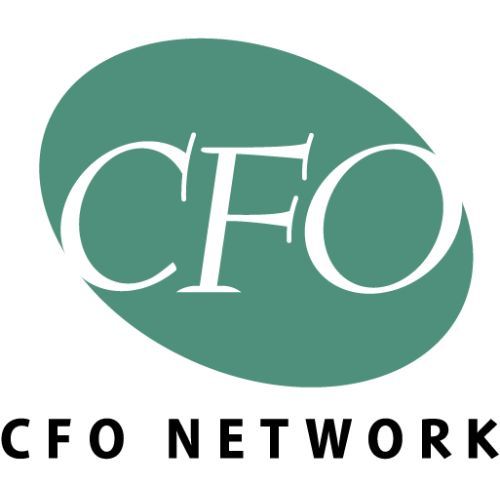Preparing for the Sale: Conducting Due Diligence Through Documentation and Financial Records Collection
This article is the eighth in a nine-part series, "CFO Network's Nine Point Plan to Sell Your Business." Each article will focus on an important facet of preparing to sell your business.
Selling a business is a complex process, and one of the most crucial steps is preparing for due diligence. Buyers will want to thoroughly review the company's operations, financial health, and legal standing to ensure they make a sound investment. For business owners, proper preparation can streamline this process, avoid delays, and maximize the chances of a successful sale. In this blog, we'll outline the key documentation potential buyers seek, common pitfalls sellers face during due diligence, and strategies to overcome them.
Key Documentation Buyers Will Be Looking For
Financial Statements (Last 3-5 Years):
Buyers will scrutinize the company's financial performance to assess profitability and stability. Be prepared to provide income statements, balance sheets, cash flow statements, and any financial forecasts. Accurate, audited financials increase buyer confidence.
Tax Returns:
Offering tax returns for the past 3 to 5 years helps buyers verify that the business has complied with tax obligations and can highlight potential red flags.
Legal Documents:
This includes business formation documents (articles of incorporation, partnership agreements), any licenses or permits required to operate, and intellectual property documentation (trademarks, patents).
Contracts and Agreements:
Buyers should review all contracts, including those with employees, vendors, suppliers, customers, and landlords. This includes non-compete agreements, leases, and any ongoing service contracts.
Employee Information:
Buyers will need a detailed overview of key employees, their compensation, benefits, and any agreements in place (such as employment contracts or non-disclosure agreements).
Customer and Vendor Lists:
A breakdown of key customers, top revenue sources, and long-term contracts with vendors will help buyers understand the business's revenue reliability and supplier relationships.
Debt and Liabilities:
Be transparent about outstanding loans, lines of credit, or other liabilities. Buyers need to know what debts they might be inheriting.
Insurance Policies:
Provide copies of all current insurance policies, including general liability, property, workers' compensation, and key person insurance. Buyers need to understand the scope of risk coverage in place.
Operational Data:
Buyers often request operational reports, such as inventory lists, equipment assets, and performance metrics that offer insight into the business's efficiency.
Litigation History:
Disclose any past or pending lawsuits, claims, or legal disputes. Being upfront about any potential legal challenges is critical for building trust with buyers.
Common Pitfalls Sellers Experience During Due Diligence (and How to Overcome Them)
Disorganized Records:
One of the most common challenges sellers face is having disorganized or incomplete documentation. Missing or outdated records can slow down the due diligence process, causing buyers to lose confidence. To overcome this, sellers should start organizing records early—ideally, well before putting the business on the market.
Solution:
Work with an accountant or advisor to organize financial records, contracts, and legal documents in a secure, easily accessible format. Regularly update these files to ensure accuracy and completeness.
Inconsistent Financials:
Inconsistencies in financial statements—whether due to differing accounting methods or simple errors—can raise red flags for buyers. Studies on mergers and acquisitions show that poorly maintained financial records are a top reason deals fall apart.
Solution:
Before the sale, consider conducting an internal audit or hiring a third-party accountant to review and standardize financial records. Clear up any discrepancies to prevent them from becoming an issue during due diligence.
Undisclosed Liabilities:
Failing to disclose liabilities such as outstanding debt, pending litigation, or contractual obligations can damage trust and potentially derail the sale. Buyers want full transparency to make an informed decision.
Solution:
Be upfront about all liabilities, no matter how minor. Provide a clear breakdown of any outstanding obligations and outline how they may impact future operations or profitability.
Inadequate Legal Preparation:
Incomplete or missing legal documentation (such as contracts, intellectual property filings, or licenses) can create legal risks and delay the sale.
Solution:
Work with a legal advisor to ensure all legal documents are in order and up to date. This includes intellectual property protections, business licenses, and employee contracts. Having clear, well-documented legal records builds buyer confidence and reduces transaction risk.
Overestimating Business Value:
Overpricing the business based on inflated earnings projections or undervalued liabilities can turn buyers away. Buyers will scrutinize financials and market conditions to ensure the valuation is realistic.
Solution:
Get an independent valuation from a business appraiser to set a fair price. A realistic valuation backed by accurate financials improves the likelihood of finding a serious buyer.
Conclusion
Due diligence preparation is a critical part of selling a business, and it can significantly influence the speed and success of the sale. By gathering and organizing key documentation—such as financial records, legal documents, and contracts—business owners can ensure they are ready to answer buyers' questions and address concerns. Avoiding pitfalls like disorganized records or undisclosed liabilities will build trust and keep the process running smoothly. Proper preparation safeguards the sale and enhances the business's overall attractiveness to potential buyers, setting the stage for a successful transaction.
Schedule a FREE consultation today.








